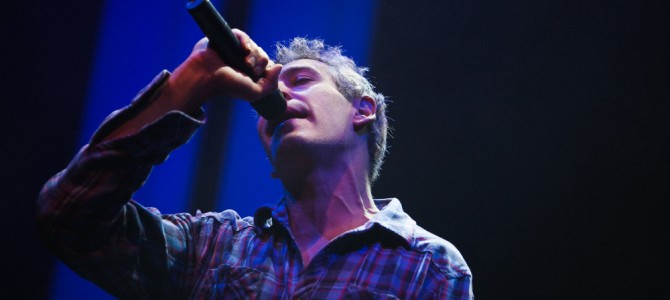Mrs. Garnett, my 9th grade art teacher, taught us that an artist’s job is to be bold and use his art to confront society about its flaws. However, sometimes, it’s an artist’s life experience that is actually more instructive.
Take, for instance, American Jewish Reggae singer Matisyahu. Matisyahu was scheduled to perform at Spain’s Rototom Sunsplash Festival on August 22.
Rototom’s own website trumpets “a culture of peace.” Yet, this year’s festival was more pugnacious than peaceful.
Earlier this month, a local Spanish outpost of the BDS (Boycott, Divestment, and Sanctions) movement leaned on concert organizer Fillippo Giunta about Matisyahu’s participation, “accus[ing] the 36-year-old of being a ‘Zionist’ who supports the practice of ‘apartheid and ethnic cleansing.’” Giunta charged the BDSers with racism “for targeting a Jewish performer whose work is devoid of politics.”
Since Matisyahu’s music celebrates co-existence and harmony, the BDSers were making an odd, and hateful, accusation. Consider the idealistic lyrics of Matisyahu’s most famous song, “One Day”:
All my life I’ve been waiting for
I’ve been praying for
For the people to say
That we don’t wanna fight no more
There will be no more wars
And our children will play
One day
However, concert organizers buckled and asked Matisyahu to address the aforementioned allegations in writing or video; he declined. On August 17, Matisyahu publicly responded on his Facebook page, making two important points. First, music can be universal and apolitical, as his is. Second, Matisyahu was clearly being singled out and asked to clarify his views on Israel and the Palestinians because he was the only openly (American) Jewish performer scheduled to perform.
Concert organizers publicly uninvited “the American Hebrew artist Matisyahu,” because “he was unwilling to ‘clearly speak out against the [2014 Gaza] war and the right of Palestinians to have their own state.’” This sounded blatantly discriminatory, in addition to completely politicizing a taxpayer funded music festival. And of course, given the setting, it awkwardly recalled 1492, when Jews were expelled from Spain.
The Spanish Federation of Jewish Communities, the World Jewish Congress, and the American Jewish Committee, among others, condemned the move. Even more significantly, there was a significant public outcry among Spaniards, the Spanish government, and Spanish media.
The unexpectedly strong backlash had an impact. Organizers pushed back against the local BDS campaigners and re-invited Matisyahu. After all this, Matisyahu performed on Saturday night. He even sang his well known song “Jerusalem,” a Psalm 137 inspired ode to the holy city, even though the crowd included cat callers and numerous, enormous Palestinian flags. Matisyahu told the audience, “Whoever you are and wherever you come from raise a flag and wave it in the air. Let music be your flag.” For many in the crowd, it was.
Bravo to the Spanish people and their government for standing up for freedom of expression and against anti-Semitism. And bravo to Matisyahu for standing up for himself as both an artist and as a Jew. The worldwide show of support for him was impressive, but it raises the troubling question of how other Jews might fare when they encounter anti-Semitism.
Given how widespread anti-Semitism is in the new millennium, this isn’t a hypothetical. Without the media spotlight and the explicit backing of international organizations and democratic governments, will other individual Jews have the strength to stand up to blatant discrimination? And must being Jewish always require finding the courage to risk your livelihood or your life? It shouldn’t. We — democracies — are at our best when we can tolerate dissent, open our minds, and let our artists pour out their hearts.









